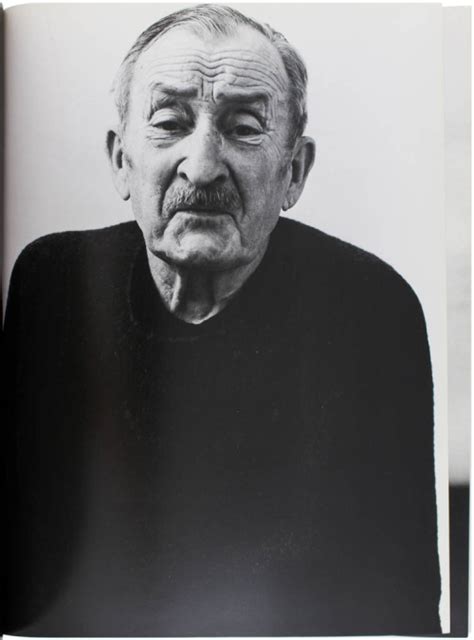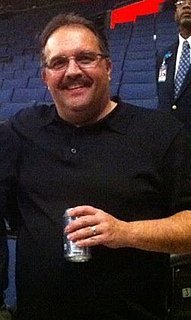A Quote by Chuck Klosterman
I think a bigger difference with social media is going to be things like the impact Instagram will have for historians. For the longest time, we had no images of the past. And then when we had the advent of the camera, we had a record of the things people chose to photograph, which, for a while, were portraits of your family, a new building we built, or a really big horse. Well now we have images of everything. That will be the biggest difference I think - that we will have a visual record of this reality in a way that will be completely covered.
Quote Topics
Advent
Big
Bigger
Biggest
Building
Built
Camera
Chose
Covered
Difference
Everything
Family
Going
Had
Historians
Horse
Images
Impact
Instagram
Like
Longest
Longest Time
Media
New
Now
Our Family
Past
People
Photograph
Portraits
Reality
Really
Record
Social
Social Media
Then
Things
Think
Time
Visual
Way
Well
Were
Which
While
Will
Your
Related Quotes
Think about death. You do not know how much time remains to you. And remember that if you do not become different, everything will be repeated again, all foolish blunders, all silly mistakes, all loss of time and opportunity - everything will be repeated with the exception of the chance you had this time, because chance never comes in the same form.You will have to look for your chance next time. And in order to do this, you will have to remember many things, and how will you remember then if you do not remember anything now?
I think with being blind the one thing you would have going is that you could still feel things, see your way around so to speak. And if you had had the experience of seeing at one time in your life, then you would know what it was like and be able to function. I've said this before, I think I could really photograph blind if I had to.
I call it "being interrupted by success." We had done The Soft Bulletin, which came out in 1999, and we knew we that were gonna make another record before too long. But in between this, we were still in this mode of kind of just - not re-creating what we could be, but kind of doing different things. For the longest time in the Flaming Lips we were like, "Make a record, go on tour. Come back, make another record," and you know, I think, frankly, we were kind of like, "There's more to life than just recording records and going on tour."
Time is of the essence, particularly if we're sending images out on social media. The reality is that the majority of images are only viewed for a few seconds, often on a phone or computer. There are so many images freely available that it takes a lot of will power to concentrate and prolong the gaze on one picture at the expense of the thousands of others waiting to be viewed!
Difference of thoughts will produce difference of language. He that thinks with more extent than another, will want words of a larger meaning; he that thinks with more subtilty will seek for terms of more nice discrimination; and where is the wonder, since words are but the images of things, that he who never knew the original should not know the copies?
You can be an artist without visual images, a reader without eyes, a mass of erudition with a bad elementary memory. In almost any subject your passion for the subject will save you. If you only care enough for a result, you will almost certainly attain it. If you wish to be rich, you will be rich; if you wish to be learned, you will be learned; if you wish to be good, you will be good. Only you must, then, really wish these things, and wish them with exclusiveness, and not wish at the same time a hundred other incompatible things just as strongly.
For example, when I was writing Leviathan, which was written both in New York and in Vermont - I think there were two summers in Vermont, in that house I wrote about in Winter Journal, that broken-down house... I was working in an out-building, a kind of shack, a tumble-down, broken-down mess of a place, and I had a green table. I just thought, "Well, is there a way to bring my life into the fiction I'm writing, will it make a difference?" And the fact is, it doesn't make any difference. It was a kind of experiment which couldn't fail.
Computer images, like camera images today, will be seen as representations of a simulated, second-degree reality with little or no connection to the unmediated world. This is one lesson we can learn from photographs, and especially from those of the last 25 years: images exist not to be believed, but to be interrogated.
One of the things I've said to teams and players from time to time - especially when things are going well like we had them going in Orlando - is that you better appreciate it and enjoy it because things change quickly in this game. You know, it's tough for guys to really think it will change on them, but it does.
For me, what was important was to record everything I saw around me, and to do this as methodically as possible. In these circumstances a good photograph is a picture that comes as close as possible to reality. But the camera never manages to record what your eyes see, or what you feel at the moment. The camera always creates a new reality.
I think it's very important, and I think that what young people will learn from my experience is that even presidents have to do that and there are consequences when you don't. But I also think that there will be a box score, and there will be that one negative, and then there will be the hundreds and hundreds and hundreds of times when the record will show that I did not abuse my authority as president, that I was truthful with the American people.
I think bands will actually make more money without record companies; a much bigger share of the money will go to the bands. You won't have record shops taking 40 percent of the money. You won't have record labels taking 40 percent of the money. So they don't have to sell as many albums as they used to in the past. So it's not necessarily a bad thing if record companies disappear.
I would give anything if it went back to analog age. I mean, music was so real, and you had to sing everything on a record; you had to play everything on a record. There was no cut-and-paste - you couldn't get the chorus right one time and then paste it every other time; you really had to be good at what you did.




































